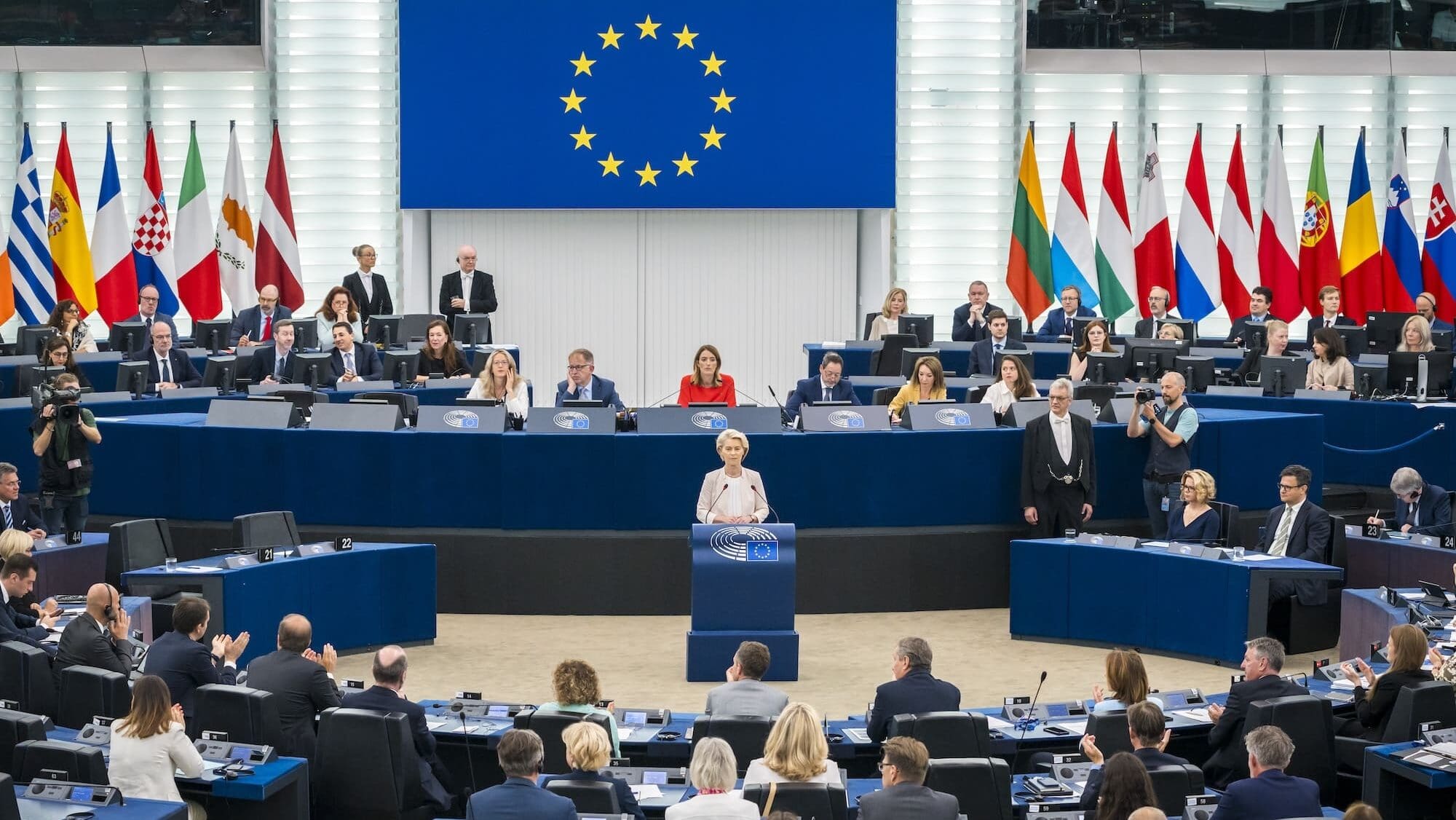
EU Commission President Ursula von der Leyen addresses the European Parliament ahead of her re-election vote on Thursday, July 18th.
Photo: Daina Le Lardic © European Union 2024 – Source : EP
In her final pitch before the vote on Thursday in front of the European Parliament’s plenary, Commission President Ursula von der Leyen made it clear once again where her priorities lie by attacking right-wing sovereigntist and Eurosceptic forces that she claims threaten the “European way of life,” whatever that often-repeated but intentionally vague term might entail.
“I will never let the extreme polarization of our societies become accepted,” the Commission chief pledged, no doubt in order to firmly secure the leftist vote. “I will never accept that demagogues and extremists destroy our European way of life. And I stand here today ready to lead the fight with all the democratic forces in this house.”
Implying that the sovereigntist parties in the Patriots group are ‘anti-democratic’ is ironic, given that they are the third-largest bloc in the European Parliament with a stronger democratic mandate than the Liberals and the Greens, two of von der Leyen’s leftist coalition partners.
Instead, what’s truly undemocratic is to deny such a force its fair representation among the Parliament’s top positions as the EU’s internal rules would have it, but it seems von der Leyen is even proud of this cordon sanitaire that takes away the voice of sixty million Europeans.
The Commission president also took a cynical jab at Hungarian PM Viktor Orbán, who recently went on a tour to meet relevant leaders on both sides of the Ukrainian conflict—including Zelensky, Putin, Xi, Erdogan, and Trump—to map out the diplomatic conditions needed for ceasefire negotiations to begin, then sent his conclusions to all 27 member states in form of a 10-point plan.
“This so-called ‘peace mission’ was nothing but an appeasement mission,” von der Leyen declared, promising to keep supporting Ukraine as long as it takes, without considering any compromise. Never mind that Europeans in most member states are way more likely to agree with Orbán and expect the EU to press for a ceasefire as well, nor that Kyiv itself is also becoming increasingly open for dialogue with Moscow.
Otherwise, von der Leyen’s program for the next five years is just as one would expect from a center-left grand coalition. She recommitted to the Green Deal and all its ambitious climate policies and decarbonization goals which brought half of Europe’s farmers onto the streets these past months—although promising not to leave them behind this time—as well as focusing on renewable energy to replace fossil fuels, without even mentioning nuclear.
Von der Leyen also pledged to recommit to her other flagship policy package, the Migration Pact, praising it as the product of a brilliant pan-European compromise, when in reality, the opposite is true. “Many pessimists thought that migration was too divisive to agree on. But we proved them wrong. Together we made it,” she said, forgetting that only 20 out of the 27 member states endorsed the final package in the end, and those opposing it were stripped of their veto to stop it.
At the very least, von der Leyen also said she would strengthen the EU’s external borders and find ways to ramp up the returns of failed asylum seekers, just as the majority of member states have been pushing for upon realizing that their Pact failed to sufficiently address either of these issues.
Von der Leyen needs 361 votes to be re-elected, and she relies on a broad center-left coalition to secure a majority in the plenary later on Thursday, made up of her centrist European People’s Party (EPP), the social democrat S&D, the liberal Renew, and the Greens.
It’s clear that despite the European voters expressing their strong desire for change, not much change will actually happen in Brussels. If anything, the rightward shifting balance of power in the Parliament only made von der Leyen forge a more leftist coalition by including the Greens.
